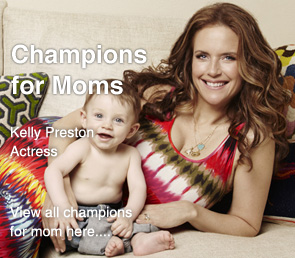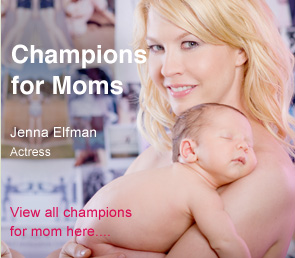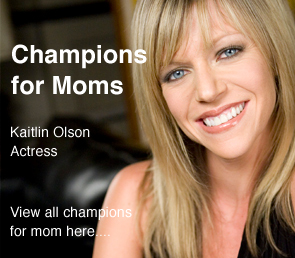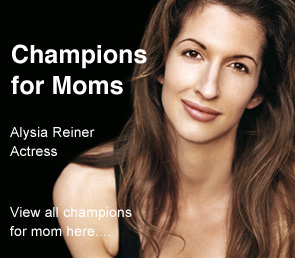Want success? Go where there is a track record for it! If you have ruled out giving birth at home or at a birth center that is known to support breastfeeding, the hospital you choose (and where you live), can determine the kind of breastfeeding help you will get. Unfortunately, only 6% (as of 2014) -yes, that’s six percent-of U.S. hospitals are certified as Baby-Friendly™, which means they agree to implement policies and practices which are proven to result in a high rate of breastfeeding success. (Click here to find a Baby Friendly USA hospital). If a Baby-Friendly hospital is not an option, arm yourself with information: find out about your hospital’s breastfeeding track-record and the kind of lactation help available-see our Top Ten Questions to Ask Your Hospital below. The CDC conducted a survey of hospitals nationwide and revealed that most hospitals are not adequately supporting breastfeeding, making it more difficult for moms to make it through the first few days or weeks, so this is incredibly important.
Top 10 Questions to Ask Your Hospital
- What percentage of mothers breastfeed exclusively (no formula supplementation) at discharge? Any number less than 50% is too low, and ideally, the number should be very high!
- What kind of lactation help is available, and is it 24/7? Ideally, you want your hospital to employ several full-time, board certified lactation consultants (IBCLCs) who are available to you 7 days a week. The reality in most places is very different: most hospitals do not employ LC’s around the clock or on weekends. So, for example, if you deliver without complications on Friday at 5pm, you may be discharged before the LC returns on Monday morning! Many hospitals claim to have fixed this problem by requiring some of their general nursing staff to also be “lactation specialists.” Unfortunately, many hospital lactation specialists are woefully undereducated about breastfeeding. We strongly suggest that you ask, other mothers about their experience with the lactation help in that hospital. If you get lukewarm to poor reviews, you may need to call in your own lactation help (see below).
- Will someone with training place the baby skin-to-skin on you after birth and help facilitate a first latch? Skin-to-skin between you and your newborn is a proven way to draw on her instinct to find your boob and begin nursing. Babies born unmedicated with no interventions are even capable of crawling to the breast by themselves and self-attaching! However, even babies born by caesarean can be put skin to skin right away, across mother’s chest, barring any complications. Regardless of the birth you have, you deserve “the magical hour“-the first hour after birth, uninterrupted, to transition your baby from the womb to security, warmth and love, and transition you to a confident, empowered, connected mother.
- What is the hospital’s policy on breastfeeding in the delivery room? How long will the baby stay with you in the delivery room? Will the baby be taken to the nursery for routine tests, i.e., measurements, weighing, bath, and immunizations? Will they respect your request to delay these things until after the first latch? Many hospitals now agree that the first bath should be left until the second day of life because it unnecessarily lowers your baby’s body temperature which, in turn, can cause the need for more interventions, which in turn can interfere with breastfeeding.
- Does the hospital give out free formula-filled diaper bags? Many hospitals are now banning this practice as evidence shows these giveaways are anything but “free”- they are a carefully marketed ploy that has been shown to reduce the number of babies who wind up breastfeeding. See www.banthebags.org to get involved in getting YOUR hospital to give up those dastardly bags.
- Do they encourage 24 hour “rooming-in” with baby? Can I “rent” a room if my baby has to stay in the NICU? Studies prove that rooming-in boosts breastfeeding rates, plus moms are less anxious and better bonded to their little babes, leading to better sleep for both. For babies with complications that need to stay in the NICU, can the mother stay at the hospital so she can provide kangaroo care, breastfeed if possible, or pump? Does the hospital use donor milk? Studies show that the mother’s presence, skin-to-skin, and human milk speeds healing, especially for pre-term, compromised or fragile babies!!
- Do the LC’s offer any breastfeeding follow-up once you are home?
- Do they have a breastfeeding “hot” or “warm” line? A hot-line is “live” telephone support 24 hours/7 days a week. A warm-line means 9-5 or less, and you might get an answering machine.
- Do they offer a breastfeeding support group? Many hospitals do. Surrounding yourself with other nursing moms in this environment is a proven way to continue breastfeeding and to keep enjoying it! Plus, you get your questions addressed for free, and get some mommy-time too! (If the hospital does not offer a GOOD support group, contact La Leche League or Breastfeeding USA, or your WIC Peer Counselor)
- Are they planning on becoming a Baby-Friendly Hospital? While you’re at it, might as well give your hospital a nudge towards achieving this designation that moms can trust. Tell them that if they become Baby-Friendly, or at least ban the formula bags, that you will spread the word to your friends, through all your social media and networking connections! That’s the way we bring about change . . . by putting positive pressure on the Booby Traps.
Did you ask your hospital these questions? Did we miss anything? Help us improve this list, and please share it with your expecting friends so they can avoid the Booby Traps!



